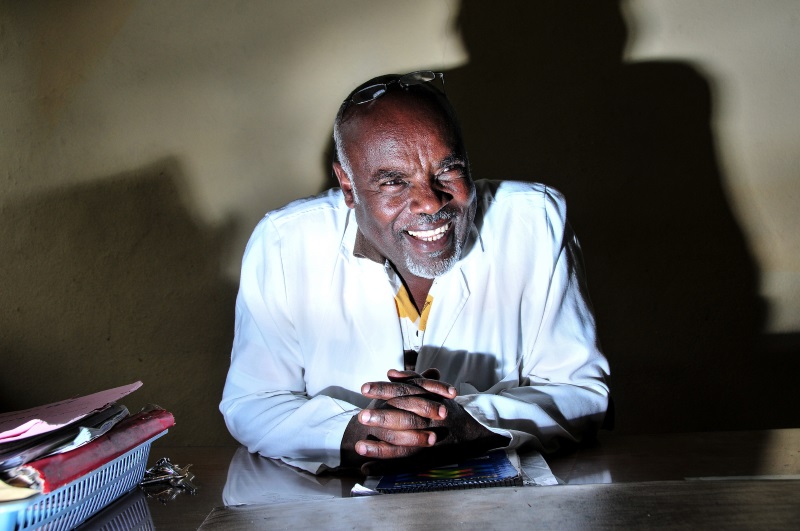As a senior researcher, Derese Eshete has spent his career with one goal in mind: to improve the living conditions of the farmers he believes he is working for. Having worked on many crops previously, including the country’s “super-grain” teff, he has settled on beans for now.
At his desk, looking out onto several fields of the rural Arsi-Negele sub-station in southeast Ethiopia, his dedication is obvious, as he describes the painstaking efforts he and his team go through, to test, evaluate and analyze bean seeds to ensure they help smallholder farmers improve their lives.
“As I’m an Ethiopian, I like our farmers to have a very nice income – and they are eager to plant the white pea beans if they can get seed,” he explains.
That, in fact, is the major challenge. While local bean varieties are in large supply, improved beans which can deliver higher yields, while being resilient to increasing swathes of pests and diseases and drought – especially with the onset of climate change – are harder to come by.
Walking through the rows of different bean varieties at the research station, Eshete makes notes on a large clipboard detailing his latest observations, for example, the effects of recent weather, or damage caused by pests or diseases. Eshete’s grandson runs behind his white lab coat, watching him work.
“We are selecting varieties which resist disease, those which are early maturing – the ones which perform better,” he explains. After that, we have state farms or seed growers here in Ethiopia. These growers can multiply the beans in a huge area – then they will distribute to our farmers. The beans will undergo more rigorous tests for drought resilience, disease resistance and canning quality, in the local context.
The best varieties are whittled down over years. This process of improving, multiplying and disseminating beans is part of a seed system delivering improved beans to farmers on a much larger scale than has been possible in the past. Part of this success is due to relationships built over decades between researchers, private sector business and other partners – including farmers, he says.

